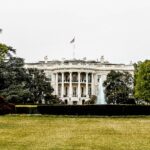The Dictator Spirit in Discourse Is Bad For Us All
One of the most effective ways for our generation to understand the truth is through the free exchange and communication of ideas. One should be able to sit down and honestly discuss their beliefs, experiences, and convictions with others through civil discourse. But in today’s polarized environment, this civilized form of Socratic dialogue is being exchanged for a gladiatorial arena where one may be shunned for speaking their opinion.
A Real Clear Education Survey found that 80% of college students self-censor themselves in areas such as racial inequality and sharing viewpoints with a professor. Furthermore, a student from Amherst College reported, “I avoid expressing more conservative or even moderate views on social media since many students at this school are very liberal and I am afraid of being ‘canceled.’”
It’s as if a lion is waiting to devour another’s personal convictions to silence their thoughts. This is a foreboding dictator spirit that many have. It is a deep hunger to dogmatically force one’s views and political beliefs on others without desiring to glean a glint of wisdom from the opposing view, slowly eroding our political discourse altogether.
The dictator spirit curbs diversity of thought and conviction. However, no matter how relentless the desire is to coerce another to think, believe, or feel a certain way about an issue, their vision could never be adopted by every individual person. In Federalist 10, James Madison states that “As long as the reason of man continues fallible, and he is at liberty to exercise it, different opinions will be formed…The diversity of faculties of men, from which the rights of property originate, is not less than an insuperable obstacle to the uniformity of interests.”
Honoring the right for the diversity of faculties to be preserved, Madison saw how people would naturally exhibit different abilities, leading to a disparity in possessions, beliefs, talents, and characteristics. This was not meant to be a negative aspect of human nature, yet he recognized how individuals with similar opinions would form factions with their own special interests, conflicting with the will of others. This is relevant to civil discourse since some envision that if all individuals could think the same, then there would be no strife or division. But this is mere fantasy.
An example of this phenomenon happened in June 2020, millions of black squares during Black Out Tuesday tyrannized almost every Instagram post to protest the death of George Floyd. All were expected to bend the knee and pay homage to him and the Black Lives Matter Movement. Yet, some fought back since they could not get behind the overall mission of Black Lives Matter.
Madison understood this tendency towards division within the human heart, knowing that opposing opinions could not be addressed by giving everyone the “same opinions, same passions, and same interests.” It utterly defied human nature. There is always a tribalist urge to fight back.
Moreover, the wariness towards one viewpoint tyrannizing others was shared by John Stuart Mill, a British classical liberal economist during the 19th century. In On Liberty, he recognized how humans had a proclivity to “impose their opinions and inclinations as a rule of conduct on others,” fueled by a “want for power.” The growth of this dictator-like spirit would be inevitable unless faced with moral conviction. But moral conviction cannot be realized until one exchanges their iron fist for a posture of openness and humility.
One crucial misconception that people who possess the “dictator spirit’ hold is the devaluation of the other’s values, beliefs, and opinions. However, listening to another’s perspective can actually help them frame what others believe in a better light. Mill writes, “the peculiar evil of silencing the expression of an opinion is, that is robbing the human race…those who dissent from the opinion, still more than those who hold it. If opinion is right, they are deprived of the opportunity of exchanging error for truth; if wrong, they lose, what is almost as great a benefit, the clearer perception and livelier impression of truth, produced by its collusion with error.”
This implies that the person with “the dictator spirit” ironically is hurt more than the person they cancel out, performing self-sabotage by refusing to hear the opposing view. Even if their view was correct all along and the opposing view, incorrect, hearing them out still cultivates wisdom. Doing so may actually cause them to feel stronger about their own views and reevaluate why they hold them so dearly.
Intentionally venturing out of one’s comfort zone to hear views contrary to their own also cultivates empathy and increases one’s understanding of the world. It was Aristotle who said, “It is the mark of an educated man to entertain a thought without accepting it.”One who possesses the dictator spirit suffers from the ailment of a closed mind, and the antidote is removing the apprehension and fear that facilitates it.
Hannah Cox, a political commentator, notices how our country is ridden with barriers that prevent people from understanding each other. “Americans live in social bubbles. We are increasingly unlikely to know people who are different from ourselves. This can lead to bias, a lack of perspective on other viewpoints, and a simplistic understanding of other groups.”
To prevent thought from becoming tyrannical, these bubbles must be broken to foster the free exchange of ideas. It is impossible for one to be fully willing to hear or grasp another’s opinion if they have only been exposed to one set of values all their life.
Furthermore, the dictator spirit can also be counteracted by emphasizing the role of individual action in decision-making and forming beliefs. Forcing one to think a certain way is the negation of individualism. It takes on the characteristic of a false group mentality, where one no longer thinks for themselves but meekly follows those who champion the current zeitgeist of the age.
In Theory and History, Ludwig Von Mises, an Austrian economist, emphasizes individual agency, with his pithy quote, “Only individuals think and act.” (191) As much as the dictator desires to condition another to think a certain way or change their mind, the only one who has the power to do so is the one who possesses it. Individuals with sole control over their minds must think for themselves and act on their convictions rather than blindly bend to another’s.
Free thought cannot prevail until people can hear the truth through open conversation and civil discourse. The dictator spirit will only impede the flow of beliefs and ideas since it curbs the ability to think for oneself and reasonably express what one holds to be true. Anything that prevents one from doing so is the antithesis of human nature.




